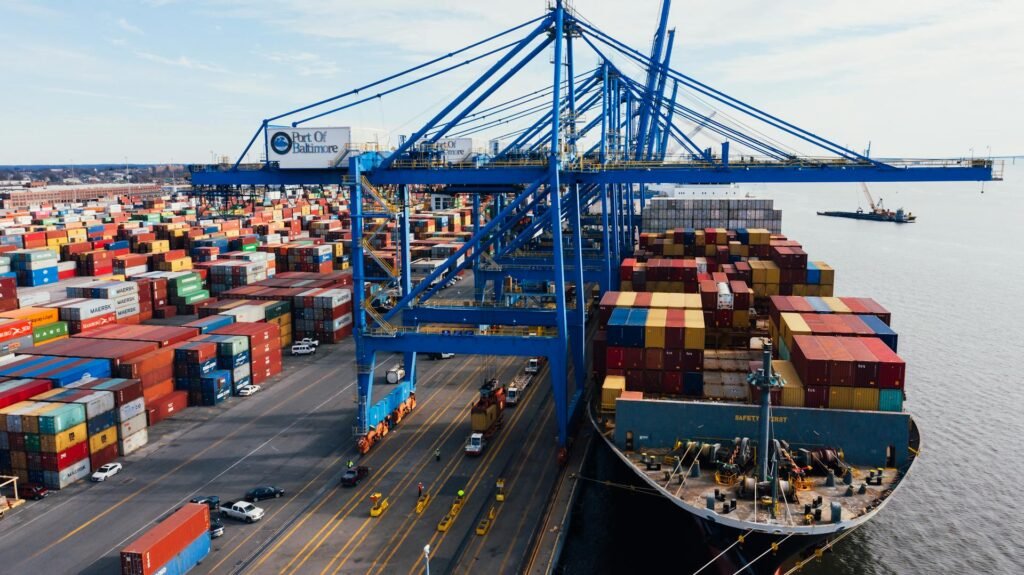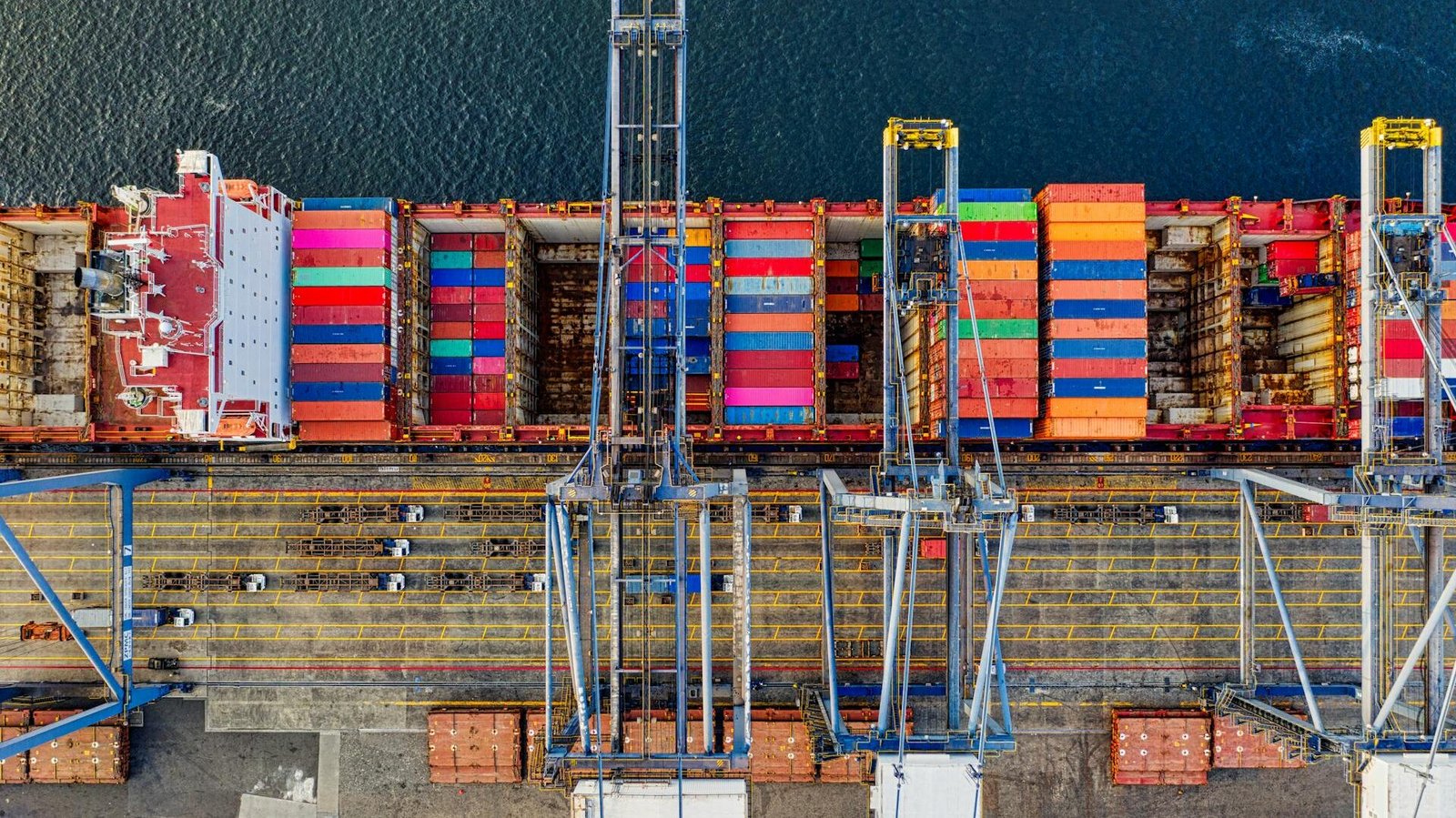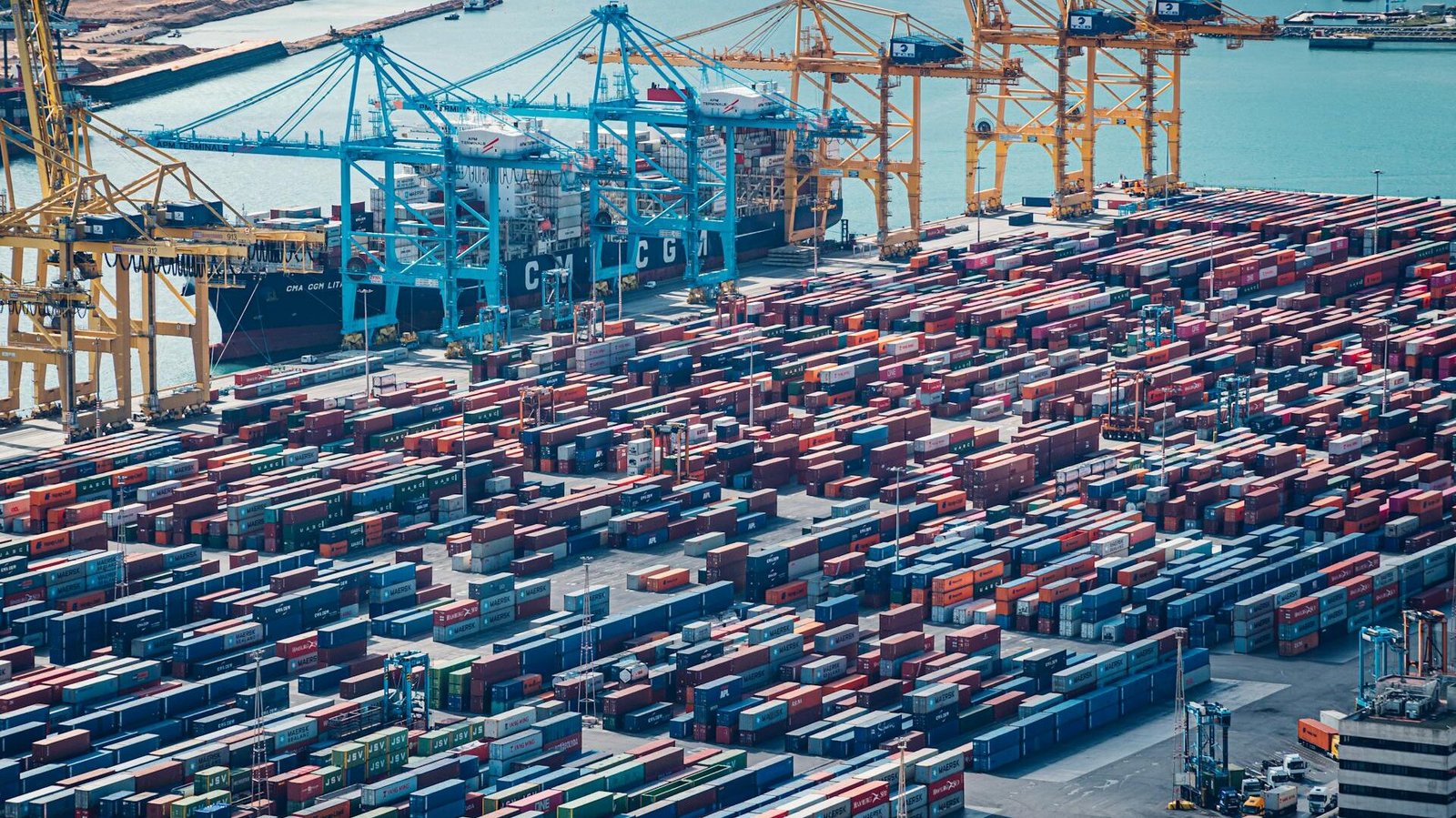
Recently, Chinese customs has significantly strengthened the supervision of purchasing customs declaration forms and successively introduced a series of new policies to strictly regulate the market order. This move has sent ripples across the international logistics industry, attracting high – level attention from industry insiders. According to authoritative statistics, in the past few months, the number of enterprises penalized by customs for non – compliance with the new policy on purchasing customs declaration forms has shown a significant upward trend.
Take a small American cross – border e – commerce enterprise as an example. Due to a shallow understanding of the compliance requirements under the new policy, it made serious information errors during the goods declaration process. Eventually, the enterprise was fined heavily by customs, and its goods were detained. These issues led to a difficult situation in the enterprise’s capital turnover, a sharp decline in customer satisfaction, and a heavy blow to its business development. Against this severe backdrop, it has become an urgent task for enterprises and customs brokers to thoroughly understand and strictly abide by the compliance requirements of the new policy on purchasing customs declaration forms.
1. Enterprise Compliance Points under the New Policy on Purchasing Customs Declaration Forms
1.1 Enterprise Qualification Review Compliance
When enterprises conduct the business of purchasing customs declaration forms, self – qualification review is undoubtedly the primary compliance point. The new policy has set stricter standards for enterprises’ registration information, business license scope, etc. Enterprises must ensure that the information they have filed with customs is accurate, covering key details such as the enterprise name, registered address, and legal representative.
In addition, an enterprise’s business scope must precisely match the goods it declares. For example, if an enterprise mainly dealing in electronic products declares a large quantity of food products, there is obviously a serious problem of non – compliant qualification. Professional freight forwarders usually use their rich experience and expertise to assist enterprises in comprehensively sorting out their qualifications, ensuring full compliance with the new policy requirements and effectively avoiding the risk of customs declaration failure due to qualification issues.
1.2 Accuracy of Goods Declaration Information
The accuracy of goods declaration information is the core key to the compliance of purchasing customs declaration forms. Enterprises must truthfully and accurately declare important information such as the name, quantity, value, and origin of the goods. Any form of false declaration may lead to serious consequences.
For instance, a certain enterprise deliberately under – reported the value of goods to reduce tariff costs and was keenly detected by customs. The enterprise not only had to pay a large amount of back – taxes but also faced severe high – value fines. The new policy has made clear and detailed regulations on the format and content of goods declaration information, and enterprises must fill out the customs declaration forms strictly in accordance with the requirements.
However, a common misunderstanding is that many enterprises think that as long as the general information is correct, they can ignore the details. In fact, a seemingly insignificant information error may trigger a further in – depth investigation by customs. Professional freight forwarders handle goods declaration information with a rigorous and meticulous attitude, carefully checking every item to ensure its accuracy.
1.3 Compliance of Capital Flow
Compliance of capital flow is also a key area that the new policy focuses on. An enterprise’s customs declaration funds must have a clear source and destination. Customs will strictly check whether an enterprise’s capital payment is completely consistent with the goods transaction.
For example, the customs declaration fees paid by an enterprise must reasonably match the value of the goods and the transportation costs. If there are abnormal situations in the capital flow, such as the unknown source or destination of a large amount of funds, customs is very likely to suspect that the enterprise is involved in smuggling or tax evasion. A common misunderstanding is that some enterprises think that capital flow is an internal matter and has nothing to do with customs declaration.
However, the new policy clearly requires enterprises to provide relevant certification documents for capital flow to ensure the compliance of capital movement. Professional freight forwarders can use their professional capabilities to help enterprises establish a standardized and perfect capital management process, ensuring that the capital flow fully meets the requirements of the new policy.
1.4 Common Misunderstandings
Many enterprises have a serious cognitive misunderstanding, thinking that as long as they have a customs declaration form, they are compliant. In fact, a customs declaration form is just one link in the customs declaration process, and enterprises also need to ensure that all the above – mentioned compliance points are effectively met. Simply holding a customs declaration form does not guarantee that an enterprise complies with the new policy requirements in key aspects such as qualification review, goods declaration information, and capital flow. Once customs discovers other compliance issues, the enterprise will inevitably face severe penalties.

2. Impact of the New Policy on Purchasing Customs Declaration Forms on the Compliance of Customs Brokers
2.1 Adjustment of Customs Brokerage Business Processes
The introduction of the new policy has brought about significant adjustments to the business processes of customs brokers. Customs brokers need to conduct more strict and detailed reviews of enterprises’ qualifications, which undoubtedly increases the difficulty and workload of pre – preparation.
In the goods declaration process, customs brokers need to check information more carefully to ensure accuracy. In addition, customs brokers also need to actively assist enterprises in handling the compliance issues of capital flow. For example, customs brokers may need to communicate in – depth with an enterprise’s finance department to fully understand the capital payment situation. These series of adjustments have led to an extension of customs brokers’ working hours and a significant increase in operating costs.
2.2 Changes in the Definition of Customs Brokers’ Responsibilities
The new policy clearly defines the scope of responsibilities of customs brokers in the business of purchasing customs declaration forms. Customs brokers are not only primarily responsible for the accuracy of customs declaration forms but also need to comprehensively supervise an enterprise’s compliance situation.
If an enterprise has compliance issues, customs brokers may be held jointly liable. For example, if a customs broker fails to fulfill its due responsibility in reviewing an enterprise’s qualifications, resulting in the enterprise being penalized by customs for non – compliant qualifications, the customs broker may also be subject to corresponding penalties. This requires customs brokers to strengthen internal management and comprehensively improve their employees’ compliance awareness to ensure that every business link meets the requirements of the new policy.
2.3 Challenges in Customs Brokers’ Compliance Management
The new policy has brought unprecedented challenges to customs brokers’ compliance management. Customs brokers need to establish a more perfect and scientific compliance management system, covering multiple important aspects such as the review standards for enterprises, information verification processes, and capital supervision.
At the same time, customs brokers also need to continuously train their employees to improve their understanding and implementation ability of the new policy. However, some small – scale customs brokers may lack sufficient resources and professional capabilities to effectively cope with these challenges, thus easily creating compliance loopholes and bringing potential risks to enterprises and themselves.
2.4 Common Misunderstandings
Some customs brokers have a wrong perception, thinking that the new policy has little impact on them and still operate according to the old business processes. This idea is extremely dangerous. The new policy has made clearer and stricter regulations on the responsibilities and obligations of customs brokers. If customs brokers do not adjust their business processes and management methods in a timely manner, they will face huge risks. Once customs discovers illegal behaviors, the reputation of customs brokers will be severely damaged, and their business will also be greatly affected.
3. Self – inspection Methods for Compliance with the New Policy on Purchasing Customs Declaration Forms
3.1 Establishing a Self – inspection List
Enterprises and customs brokers can jointly establish a detailed and comprehensive self – inspection list covering all compliance requirements under the new policy. The list can include key aspects such as enterprise qualification review, goods declaration information, and capital flow.
For example, in terms of enterprise qualification review, detailed inspection items such as registration information and business license scope can be listed; in terms of goods declaration information, key points for verification such as the name, quantity, and value of goods can be listed. By regularly conducting self – inspections against the list, potential compliance issues can be discovered in a timely manner, preventing problems before they occur.
3.2 Regular Internal Audits
Regular internal audits are an important means to ensure compliance. Enterprises and customs brokers can form professional internal audit teams to conduct comprehensive and in – depth inspections of their own businesses.
The audit team can carefully check an enterprise’s financial statements, customs declaration forms, capital flow documents, etc., to comprehensively evaluate whether they meet the requirements of the new policy. Internal audits can discover some deeply hidden compliance issues and promptly take effective corrective measures to ensure that the businesses of enterprises and customs brokers always remain in a compliant state.
3.3 Leveraging Professional Institutions
Enterprises and customs brokers can also fully leverage the power of professional institutions for compliance self – inspections. Professional freight forwarding companies or consulting institutions have rich industry experience and expertise and can provide comprehensive and accurate compliance evaluations and professional advice for enterprises and customs brokers.
For example, professional institutions can help enterprises optimize their qualification review processes, improve the accuracy of goods declaration information, and standardize capital management. By leveraging the services of professional institutions, the accuracy and effectiveness of self – inspections can be significantly improved, providing strong support for the compliant operations of enterprises and customs brokers.
3.4 Common Misunderstandings
Some enterprises and customs brokers often just go through the motions during self – inspections and do not conduct in – depth checks. They may simply verify some surface information while ignoring deep – seated compliance issues. This approach cannot truly discover and solve problems and easily leads to serious loopholes during customs inspections. Therefore, self – inspections must be carried out seriously and comprehensively to ensure that every compliance point is carefully examined.

4. Summary and Suggestions
4.1 Response Strategies for Enterprises and Customs Brokers
Enterprises and customs brokers need to further strengthen their close cooperation to jointly address the compliance requirements of the new policy on purchasing customs declaration forms. Enterprises should actively cooperate with the work of customs brokers, providing various types of information and materials in a timely and accurate manner. Customs brokers, on the other hand, should give full play to their professional advantages, providing all – around and professional guidance and services to help enterprises effectively solve compliance problems.
At the same time, both enterprises and customs brokers should attach great importance to internal management, establish a sound compliance system, and continuously improve employees’ compliance awareness to create a good atmosphere of full – staff compliance.
4.2 Extended Thinking
How to maintain continuous compliance in purchasing customs declaration forms is an important issue that enterprises and customs brokers need to think deeply about. As the market environment changes constantly and policies are continuously updated, compliance requirements will also evolve. Enterprises and customs brokers need to establish a dynamic and flexible compliance management mechanism, keep up with the changes of the new policy in a timely manner, and quickly adjust their business processes and management methods.
In addition, enterprises and customs brokers can also strengthen communication and exchanges with customs to timely understand customs’ supervision priorities and the latest requirements, effectively avoiding compliance issues.
Did your freight forwarder provide you with comprehensive and professional compliance advice when facing the new policy on purchasing customs declaration forms? In the international logistics industry, “the customs blacklist is like the credit score in the logistics circle.” Once on the blacklist, the businesses of enterprises and customs brokers will be severely affected. It is hoped that enterprises and customs brokers can attach great importance to the compliance requirements of the new policy on purchasing customs declaration forms and jointly create a standardized, healthy, and orderly customs declaration market. What tricky problems have you encountered in the compliance of purchasing customs declaration forms? Welcome to share your valuable experience and unique insights in the comments section.





